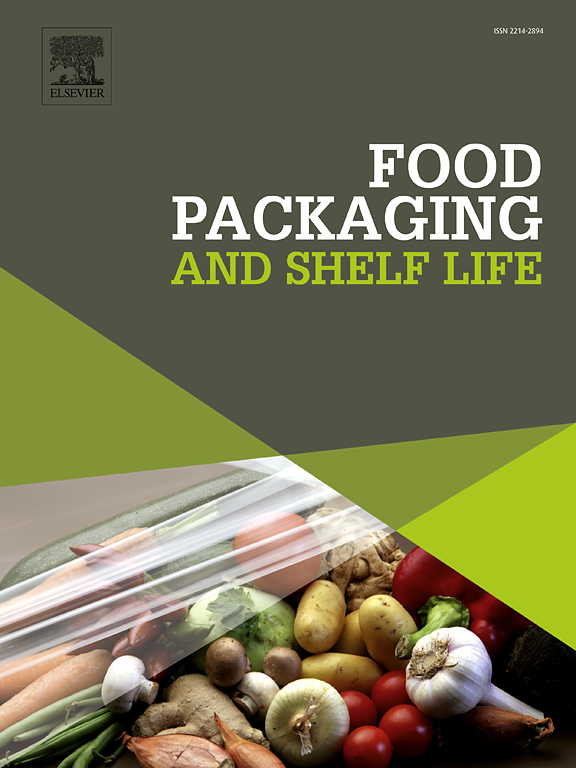Modified collagen-based biofilms for postharvest preservation of fruits and vegetables
IF 10.6
1区 农林科学
Q1 FOOD SCIENCE & TECHNOLOGY
引用次数: 0
Abstract
Fruits and vegetables, while rich in nutrients, are highly susceptible to postharvest deterioration, necessitating the development of advanced preservation technologies. Collagen has garnered significant attention as a bio-based material for food preservation owing to its superior biocompatibility, biodegradability, and film-forming capabilities. However, native collagen films often exhibit suboptimal mechanical properties and limited functional performance. This review critically examines recent progress in the development of modified collagen-based films for postharvest preservation, with emphasis on collagen extraction methods, film-forming mechanisms, and modification strategies, encompassing physical, chemical, enzymatic, and artificial intelligence (AI)-assisted techniques. The integration of AI facilitates the optimization of film formulation and preservation parameters, enabling the development of multifunctional films with enhanced mechanical strength, antioxidant activity, and antimicrobial properties. These advancements contribute to the effective regulation of gas exchange and microbial proliferation on produce surfaces. Furthermore, this review explores the current challenges in establishing sustainable and intelligent preservation systems, particularly in terms of long-term stability, large-scale manufacturability, and seamless AI integration. The insights presented herein provide a theoretical framework to support the industrial application of AI-driven, collagen-based smart preservation technologies in the food industry.
用于果蔬采后保存的改性胶原基生物膜
水果和蔬菜虽然营养丰富,但采后很容易变质,因此需要发展先进的保鲜技术。胶原蛋白由于其优越的生物相容性、生物可降解性和成膜能力,作为食品保鲜的生物基材料,受到了广泛的关注。然而,天然胶原膜经常表现出不理想的机械性能和有限的功能性能。本文综述了用于采后保存的改性胶原膜的最新进展,重点介绍了胶原蛋白提取方法、成膜机制和修饰策略,包括物理、化学、酶和人工智能(AI)辅助技术。AI的集成有助于优化薄膜配方和保存参数,从而开发出具有增强机械强度、抗氧化活性和抗菌性能的多功能薄膜。这些进展有助于有效地调节产品表面的气体交换和微生物增殖。此外,本文还探讨了目前建立可持续和智能保存系统所面临的挑战,特别是在长期稳定性、大规模可制造性和人工智能无缝集成方面。本文提出的见解为支持人工智能驱动的基于胶原蛋白的智能保存技术在食品工业中的工业应用提供了理论框架。
本文章由计算机程序翻译,如有差异,请以英文原文为准。
求助全文
约1分钟内获得全文
求助全文
来源期刊

Food Packaging and Shelf Life
Agricultural and Biological Sciences-Food Science
CiteScore
14.00
自引率
8.80%
发文量
214
审稿时长
70 days
期刊介绍:
Food packaging is crucial for preserving food integrity throughout the distribution chain. It safeguards against contamination by physical, chemical, and biological agents, ensuring the safety and quality of processed foods. The evolution of novel food packaging, including modified atmosphere and active packaging, has extended shelf life, enhancing convenience for consumers. Shelf life, the duration a perishable item remains suitable for sale, use, or consumption, is intricately linked with food packaging, emphasizing its role in maintaining product quality and safety.
 求助内容:
求助内容: 应助结果提醒方式:
应助结果提醒方式:


